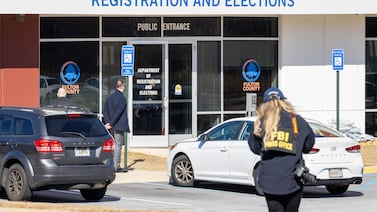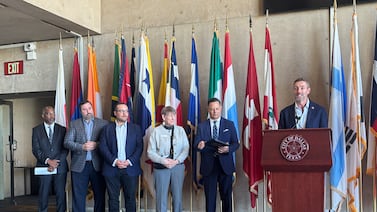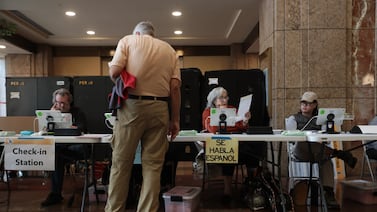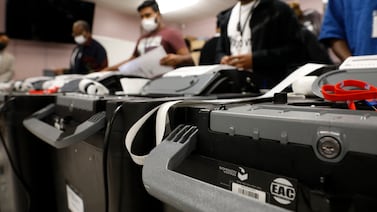Turnover hasn’t slowed since the 2020 election, with officials citing threats, stress, and burnout.
Secretaries of state gathered for a national conference emphasize confidence in election systems
Officials say elections will happen — the bigger danger is chaos and distrust.
After years of collaboration on election security, states say federal support is retreating — and trust is collapsing.
Citing cost and logistics, Republicans will contract with the county to use voting equipment.
Combining local races with larger contests improves participation and saves money.
There are reasons to be wary, but historically, such efforts have been a routine part of how our democracy safeguards itself.
For now, not much. Election officials were surprised by the deal, but now say they’re not expecting big changes under the new owner.
Nonprofit voter registration nonprofits can ill afford threats to their credibility and financial support.
The League of Women Voters and other civic groups are shut out of USCIS naturalization ceremonies. But their voter registration work continues at other sites.








